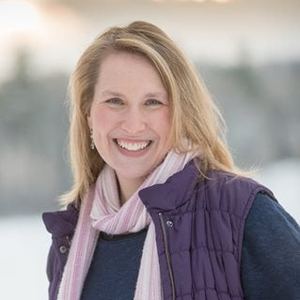A Dietitian’s Personal Story
Author:
Kara Richardson Whitely
Trusting messages about food
I grew up as a teen in the 1980s when fat in foods was the enemy. And as I was swept up in diet culture, there were many rules and different thoughts about food that turned out to do more harm than good.
The hardest people for me to trust were dietitians. Over the years I’ve met my fair share of dietitians who were more focused on the “eat less, move more” than on me as a person. They didn’t see the emotional component of food for me. They didn’t see that restriction would set me up for a binge.
And yet I’d pay these folks, looking for some kind of advice or guidance that would set me straight. What I didn’t know then, but am well aware of now, is that I had an eating disorder. What I also didn’t know is that I needed to be working with a dietitian who specialized in eating disorders.
Relationships with food and body
Back then my eating disorder didn’t have a name. Sometimes it was framed as compulsive overeating. Now it’s clear as day in the DSM-5 as binge eating disorder. And in my team of eating disorder specialists, there have been some incredible dietitians who have helped me rewire my narrative about food.
They have helped me erase the notion of good and bad. They have helped me see food as nourishment. Having binge eating disorder and a complicated relationship with food is tricky. Food is an integral part of our lives, and so these lessons in real time can help shift our perceptions and truly change lives.
Tackling fear around food with dietitian guidance
When I visited Eating Recovery Center’s Chicago Binge Eating Treatment and Recovery (BETR) program, I was able to sit in on a lunch outing. The dietitian who accompanied the group talked about pacing. They gently reminded the group about time, as individuals worked to slow down. Some patients struggled with pacing. Others were nervous about making choices and how people would judge them for the items they selected. These issues were managed in a real-world setting − good practice to make the next encounter in a restaurant with family or friends just that much more manageable.
This Eating Recovery Center dietitian was the same person who was leading folks through food exposures – breaking through fears about food experiences (such as shopping in the store, ordering food in a public place) and helping them along with the treatment team to the other side, to a place of healing and rebuilding.
So much of recovery is just that: healing and rebuilding. And this month especially I celebrate the eating disorder specialist dietitians who are out changing lives, helping people heal their relationship with their bodies and food so they can learn to trust again.
Kara Richardson Whitely is the author of Gorge: My Journey Up Kilimanjaro at 300 Pounds, which is being made into a movie with This Is Us actress Chrissy Metz producing and starring. You can follow her journey on Instagram @kararichardsonwhitely.
Across 21 States: The Most Comprehensive Virtual Binge Eating Disorder Programming Available
For those seeking treatment for Binge Eating Disorder, we offer virtual programs across the country. Run by specialized, multidisciplinary teams using our proven, evidence-based curriculum, we work together to break the cycle of dieting, deprivation and bingeing. We offer a supportive, connected community and the opportunity to interact with other BED patients in a small group setting. Receive the same trusted treatment, accessible from your home.
Ask one of our master’s-level clinicians if our virtual Binge Eating Disorder program is right for you.
Struggling with an eating disorder?
One conversation can make all the difference. Connect with us today.
Get Help NowConnect With Us

